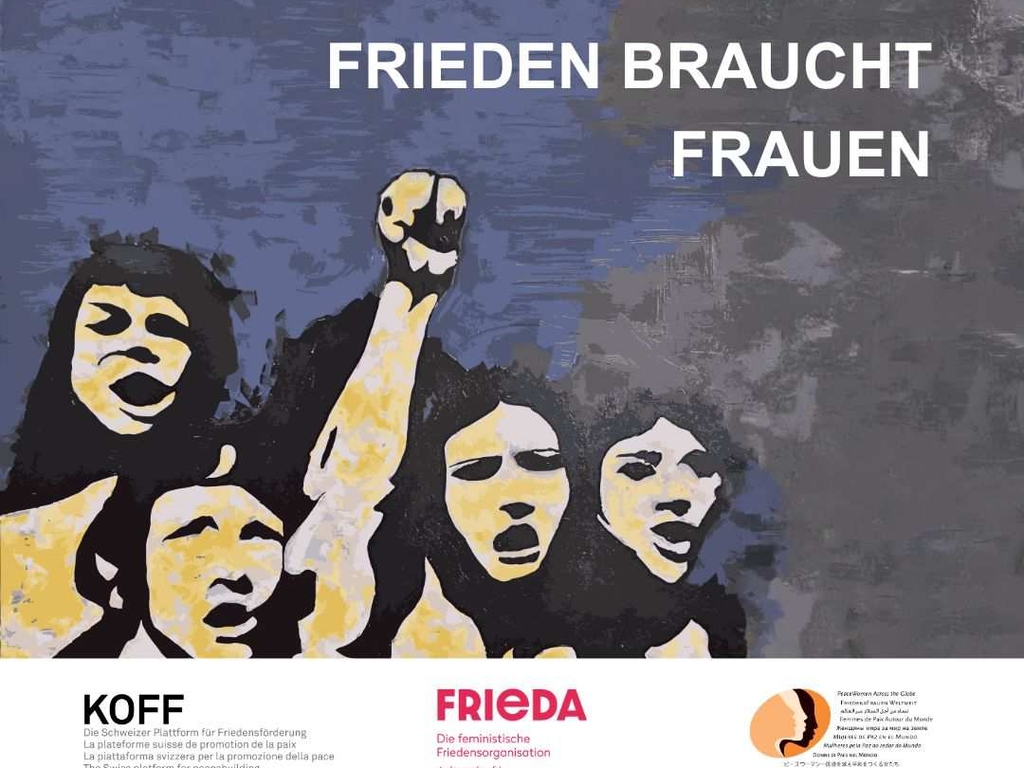On 31 October 2000, the UN Security Council Resolution on Women, Peace and Security (WPS) was adopted unanimously by all 15 members of the Council. At the core of the landmark resolution that launched the Women, Peace and Security agenda lies the fundamental principle that “peace is not possible without the full, equal, meaningful and safe participation and leadership of women and girls in all their diversity”. Twenty-five years later, the WPS agenda hangs by a thread.
The world is facing a multitude of challenges – with direct and dire consequences for peace, women’s and LGBTQIA+ rights in general and the WPS agenda in particular. Today, peace and feminist movements operate in increasingly hostile environments. They must navigate against the harsh winds of an increasing gender backlash and within shrinking civil society spaces. Many operate during ongoing armed conflicts that currently number more than 110, each leading to the loss of civilian lives, the constant violation of human rights and international humanitarian laws.
Globally, states divert core budgets to invest massively in military spending. Peacebuilding organisations, particularly feminist ones, are affected by a dramatic reduction in or lack of funding to work for the prevention of armed conflicts and for building sustainable peace.
As the WPS agenda turns 25 today, we, the Alliance for Women, Peace, and Security, highlight the need to recall the guiding principles enshrined in the UN Resolution 1325 and take decisive action to fulfil its promises:
The WPS agenda was visionary and bold: it outlines the key components for achieving genuine peace and security for everyone. On this anniversary and going forward, governments and decision-makers must recognise that:
o Women and feminist-led peace organisations and movements are playing a crucial role in building peace before, during and after formal agreements are signed and thereby transforming societies to make them safer for everyone. Their multiple roles must not only be acknowledged – they must be given access to places where decisions are taken and their demands and visions must be heard.
o The WPS agenda never was about making wars “safer for women”. It is a blueprint for preventing conflict, promoting human security and achieving sustainable peace by actively tackling structural violence and inequalities and by ensuring the meaningful participation of women. It is crucial that the focus and application of the WPS agenda goes beyond the moment when peace agreements are negotiated and signed, but instead includes all contributions towards conflict transformation and a positive and feminist peace that involves more than the absence of armed conflict and direct violence.
o Peace is more than the absence of war. At least one in two women in Switzerland experiences sexualized violence. Every two weeks, a woman is killed in Switzerland simply because she is a woman. Feminist peace is still far from becoming a reality in Switzerland and must be actively promoted.
● Today the WPS agenda, which was the result of extensive lobbying and the courageous activism of feminists and peace movements, risks becoming a paper tiger. Without political will and adequate financial support, we fail the women and feminist peacebuilders at the frontlines, many of whom risk their lives in pursuit of an inclusive and sustainable peace.
● Switzerland has shown commitment to advancing the WPS agenda, with active informal and later formal involvement of Swiss civil society in the National Action Plans (NAP) that have been drafted to date[1]. A comprehensive and fully implemented NAP is essential to ensure that the commitments translate into concrete action. At the same time, Switzerland has approved a significant increase in military spending, which risks putting pressure on budgets for humanitarian aid, development cooperation and peacebuilding. To remain consistent with its WPS commitments, Switzerland must reinforce its support for the women and feminist peacebuilders who are at the forefront of preventing armed conflicts and sustaining peace in Switzerland and abroad.
This is a crucial moment.
Just when the principles of the WPS agenda are more relevant than ever, women and feminist peacebuilders are facing challenges from the increase in authoritarian tendencies and a resurgence of militarized security. To prevent the WPS agenda from becoming merely rhetorical, tangible action is needed, including: long-term and flexible funding for the implementation of National Action Plans, and the protection of civil society spaces that enable women’s meaningful participation in peace processes and access to decision-making.
The Alliance for Women, Peace, and Security stands in solidarity with women peacebuilders worldwide and so should Switzerland and all countries that adopted the WPS Agenda 25 years ago and have drafted National Action Plans since then.
It’s the only way forward if we want to build a safer world for all.
More information on Women, Peace and Security
On our website "UN Security Council Resolution 1325", you can find information about the resolution and all reports from the civil society alliance.
Earlier and later events
Previous post:
